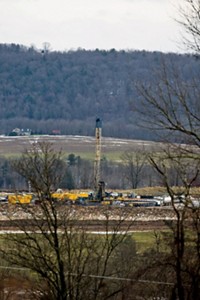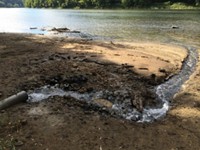Advertisement
Grab your lab coat. Let's get started
Welcome!
Welcome!
Create an account below to get 6 C&EN articles per month, receive newsletters and more - all free.
It seems this is your first time logging in online. Please enter the following information to continue.
As an ACS member you automatically get access to this site. All we need is few more details to create your reading experience.
Not you? Sign in with a different account.
Not you? Sign in with a different account.
ERROR 1
ERROR 1
ERROR 2
ERROR 2
ERROR 2
ERROR 2
ERROR 2
Password and Confirm password must match.
If you have an ACS member number, please enter it here so we can link this account to your membership. (optional)
ERROR 2
ACS values your privacy. By submitting your information, you are gaining access to C&EN and subscribing to our weekly newsletter. We use the information you provide to make your reading experience better, and we will never sell your data to third party members.
Environment
Shale Formations Connected To Aquifers
by Jeff Johnson
July 16, 2012
| A version of this story appeared in
Volume 90, Issue 29

Pathways exist that would allow migration of methane, brines, or fracturing fluids from deep Marcellus Shale gas formations to shallow drinking water aquifers, according to a new study (Proc. Natl. Acad. Sci. USA, DOI: 10.1073/pnas.1121181109). Geologists at Duke University and California State Polytechnic University, Pomona, examined geochemical evidence in northeastern Pennsylvania. They found that migration of naturally occurring Marcellus brines and other materials has taken place through natural hydraulic connections between 1-mile-deep geological formations and shallow aquifers. These pathways predate the current shale fracturing activities occurring in the area, the study notes. The study examined three aquifers and analyzed 426 groundwater samples and 83 deep-formation brine samples. The researchers found compounds from the brine in the groundwater. They noted the increasing concern of communities in the region over contamination of drinking water from natural gas exploration in the area, but the study did not demonstrate that methane or drilling fluids are in aquifers.




Join the conversation
Contact the reporter
Submit a Letter to the Editor for publication
Engage with us on Twitter